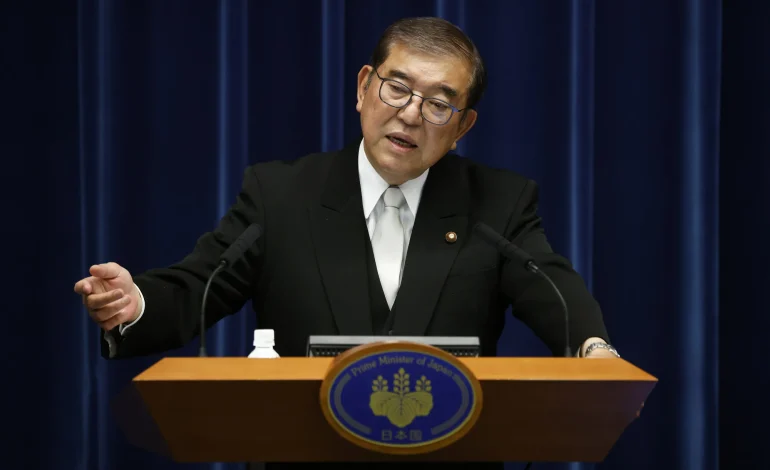Japanese Prime Minister Shigeru Ishiba secured parliamentary approval Friday for a ¥39 trillion ($250 billion) economic stimulus package, slightly larger than last year’s, Bloomberg reports.
The package, designed to alleviate the strain of rising costs on households and businesses, represents a crucial test for Ishiba’s minority government.
While the overall figure includes projected private sector spending, the direct government expenditure will be around ¥13.9 trillion, aligning with earlier drafts reported by Bloomberg. This substantial spending plan, coupled with an upcoming supplementary budget, will significantly challenge Ishiba’s ability to govern effectively after his ruling coalition lost its parliamentary majority in the October 27 lower house election.
To secure passage, Ishiba negotiated a deal with the opposition Democratic Party for the People (DPP), granting the opposition party significant influence. In exchange for their crucial votes, the DPP successfully pushed for an increase in the tax-free income cap, a concession included in the final package. This highlights the increased leverage opposition parties now wield, forcing the ruling coalition to compromise.
The stimulus package features several key elements:
- Wage Growth: Prime Minister Ishiba emphasized wage increases across all generations as the package’s most critical component.
- Direct Payments: Cash handouts are targeted at low-income households.
- Strategic Investments: Funding is allocated to bolster the semiconductor and artificial intelligence sectors.
- Energy Subsidies: Subsidies for gas and electricity bills will resume in January to protect consumers from soaring energy costs.
A breakdown of the ¥21.9 trillion in direct government spending shows: ¥10.4 trillion for economic growth, ¥4.6 trillion for price relief measures, and ¥6.9 trillion for other economic, social, and security initiatives, including disaster management.
The successful negotiation represents a new phase for the Liberal Democratic Party (LDP), signaling a willingness to incorporate opposition policy ideas. However, significant challenges remain, particularly concerning Ishiba’s planned tax increases to fund defense spending increases—a measure encountering resistance from all major opposition parties.
Ishiba’s approval ratings remain low, with a recent NHK poll showing 41% approval and 37% disapproval. The stimulus package’s passage provides some respite after a recent trip abroad that drew criticism for his absence from a key APEC event. However, the delicate political balance and upcoming legislative battles, including the next fiscal year’s budget, will continue to test Ishiba’s leadership.
Despite these domestic challenges, Ishiba’s recent summit with Chinese President Xi Jinping yielded positive results, including a reported plan by China to reinstate short-term visa exemptions for Japanese visitors, according to the Yomiuri Shimbun.









